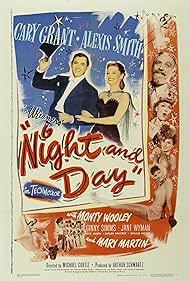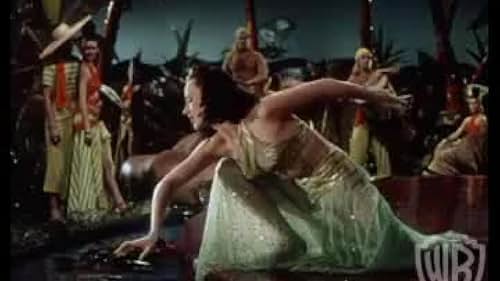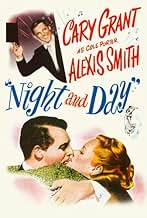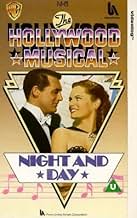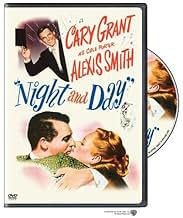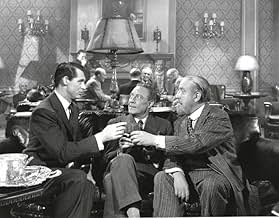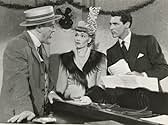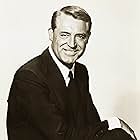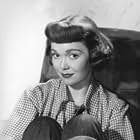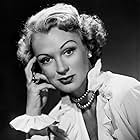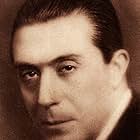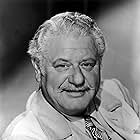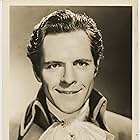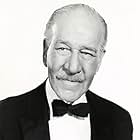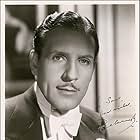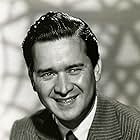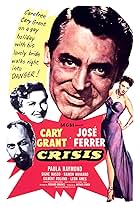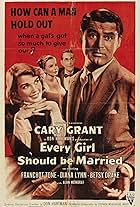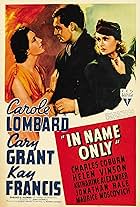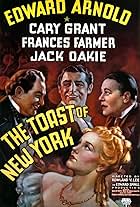VALUTAZIONE IMDb
6,1/10
3275
LA TUA VALUTAZIONE
Aggiungi una trama nella tua linguaA fictionalized biopic of composer Cole Porter from his days at Yale in the 1910s through the height of his success to the 1940s.A fictionalized biopic of composer Cole Porter from his days at Yale in the 1910s through the height of his success to the 1940s.A fictionalized biopic of composer Cole Porter from his days at Yale in the 1910s through the height of his success to the 1940s.
- Candidato a 1 Oscar
- 1 candidatura in totale
Trama
Lo sapevi?
- QuizAfter attending the premiere of the film, Cole Porter supposedly remarked to his wife, Linda, "if I could survive that, I can survive anything."
- BlooperWhen in England, there are street performers singing "Rosalie". The accordion player's hands never press the keys; in fact, his right hand is static throughout the whole scene.
- Citazioni
Monty Woolley: Haven't you ever wanted to be alone?
Gracie Harris: Yes, but with somebody.
- ConnessioniEdited from Don't Fence Me In (1945)
- Colonne sonoreNight and Day
(1932) (uncredited)
Written by Cole Porter
Played during the opening credits and often in the score
Sung by Bill Days
Reprised by passengers on a train
Recensione in evidenza
Unlike film biographies of George Gershwin, Jerome Kern, and Sigmund Romberg or for that matter Rodgers&Hart, those artists were gone by the time the silver screen told their stories. But Cole Porter was very much still with us when Night and Day was released in 1946 and some of his best work was yet to come.
If Cole Porter had his druthers Cary Grant would never have played the part of himself. Porter fancied himself as more the Fred Astaire type. But given the nature of what happened to Porter in his life, a dancing Cole Porter was out of the question.
There's not too much that's accurate in this film. Cole Porter was born and raised in Indiana in affluent surroundings. Yes he went to Yale and his best and lifelong friend that he acquired from Yale was Monty Woolley. Yes he did marry the older and glamorous Linda Lee Thomas. And yes he composed some of the most beautiful and sophisticated songs ever done.
Of course his marriage to Linda Lee was a sham. In the vernacular of the time Linda served as his beard, his cover as it were because Cole Porter was gay. As was his lifelong friend Monty Woolley.
Were they ever involved with each other. Maybe as youths, but from what I've heard their tastes were different. Porter liked his male partners as sophisticated as he was and as beautiful as his songs were. Monty on the other hand was known for picking up street kids from Maine to California until he died.
One thing that was true although glamorized for the film, Porter did serve in the French army during World War I. No wounds however, no hearing of African rhythms from Senegalese troops were he got the idea for Night and Day.
Night and Day sure jumbles up even the order of his shows. Porter was writing songs from before Yale, but he did not score a commercial musical comedy hit until the show Paris in 1928 where the song Let's Do It was featured. I sure didn't know that In the Still of the Night was originally done as a Christmas Carol way back in his youth for instance.
In fact Where the Still of the Night, along with I've Got You Under My Skin, Rosalie, and Easy to Love were all written for MGM musicals. You can take it to the bank that Louis B. Mayer soaked Jack Warner for plenty to get those songs heard in a Warner Brothers film. Similarly the title song Night and Day, heard in The Gay Divorce on Broadway first, made its screen debut in RKO's The Gay Divorcée. Jack Warner must have paid RKO plenty for that one also.
The other true thing is the fall from a horse that Porter suffered in the late thirties, the constant pain he was in all of his life. It took 28 operations to save his legs back in the thirties. In 1958 long after the story in the film ended, Porter did eventually lose a leg and from then on lived as a recluse in his suite at the Waldorf Towers. Linda Lee Thomas Porter had passed away about a decade before.
Alexis Smith plays Linda Lee here and the cast of Night and Day also includes Jane Wyman, Dorothy Malone, Selena Royle, Tom D'Andrea, Henry Stephenson, Donald Woods. Playing themselves are Mary Martin and Monty Woolley. Singer Ginny Simms of the Kay Kyser band sang many of the Porter tunes for the film.
Night and Day certainly captures Porter's sophistication. Of course the gay lifestyle and a pretty hedonistic one at that which Porter led would not be shown at all back in the days of the Code. Some might complain about that pleasure driven pursuit that Porter had his whole life. If he sought beauty and pleasure in the world, Cole Porter certainly gave enough of it back to the world to justify it.
After Night and Day, Cole Porter had still yet to write such film scores as The Pirate, High Society, and Les Girls and such Broadway shows as Kiss Me Kate, Out of this Wolrd, Can-Can, and Silk Stockings. You could score a film with just the material he had yet to write.
It's not a great biographical film, but Night and Day provides as good an excuse as any to listen and appreciate the art that was Cole Porter.
If Cole Porter had his druthers Cary Grant would never have played the part of himself. Porter fancied himself as more the Fred Astaire type. But given the nature of what happened to Porter in his life, a dancing Cole Porter was out of the question.
There's not too much that's accurate in this film. Cole Porter was born and raised in Indiana in affluent surroundings. Yes he went to Yale and his best and lifelong friend that he acquired from Yale was Monty Woolley. Yes he did marry the older and glamorous Linda Lee Thomas. And yes he composed some of the most beautiful and sophisticated songs ever done.
Of course his marriage to Linda Lee was a sham. In the vernacular of the time Linda served as his beard, his cover as it were because Cole Porter was gay. As was his lifelong friend Monty Woolley.
Were they ever involved with each other. Maybe as youths, but from what I've heard their tastes were different. Porter liked his male partners as sophisticated as he was and as beautiful as his songs were. Monty on the other hand was known for picking up street kids from Maine to California until he died.
One thing that was true although glamorized for the film, Porter did serve in the French army during World War I. No wounds however, no hearing of African rhythms from Senegalese troops were he got the idea for Night and Day.
Night and Day sure jumbles up even the order of his shows. Porter was writing songs from before Yale, but he did not score a commercial musical comedy hit until the show Paris in 1928 where the song Let's Do It was featured. I sure didn't know that In the Still of the Night was originally done as a Christmas Carol way back in his youth for instance.
In fact Where the Still of the Night, along with I've Got You Under My Skin, Rosalie, and Easy to Love were all written for MGM musicals. You can take it to the bank that Louis B. Mayer soaked Jack Warner for plenty to get those songs heard in a Warner Brothers film. Similarly the title song Night and Day, heard in The Gay Divorce on Broadway first, made its screen debut in RKO's The Gay Divorcée. Jack Warner must have paid RKO plenty for that one also.
The other true thing is the fall from a horse that Porter suffered in the late thirties, the constant pain he was in all of his life. It took 28 operations to save his legs back in the thirties. In 1958 long after the story in the film ended, Porter did eventually lose a leg and from then on lived as a recluse in his suite at the Waldorf Towers. Linda Lee Thomas Porter had passed away about a decade before.
Alexis Smith plays Linda Lee here and the cast of Night and Day also includes Jane Wyman, Dorothy Malone, Selena Royle, Tom D'Andrea, Henry Stephenson, Donald Woods. Playing themselves are Mary Martin and Monty Woolley. Singer Ginny Simms of the Kay Kyser band sang many of the Porter tunes for the film.
Night and Day certainly captures Porter's sophistication. Of course the gay lifestyle and a pretty hedonistic one at that which Porter led would not be shown at all back in the days of the Code. Some might complain about that pleasure driven pursuit that Porter had his whole life. If he sought beauty and pleasure in the world, Cole Porter certainly gave enough of it back to the world to justify it.
After Night and Day, Cole Porter had still yet to write such film scores as The Pirate, High Society, and Les Girls and such Broadway shows as Kiss Me Kate, Out of this Wolrd, Can-Can, and Silk Stockings. You could score a film with just the material he had yet to write.
It's not a great biographical film, but Night and Day provides as good an excuse as any to listen and appreciate the art that was Cole Porter.
- bkoganbing
- 17 feb 2007
- Permalink
I più visti
Accedi per valutare e creare un elenco di titoli salvati per ottenere consigli personalizzati
- How long is Night and Day?Powered by Alexa
Dettagli
Botteghino
- Budget
- 4.445.000 USD (previsto)
- Tempo di esecuzione2 ore 8 minuti
- Proporzioni
- 1.37 : 1
Contribuisci a questa pagina
Suggerisci una modifica o aggiungi i contenuti mancanti

Divario superiore
By what name was Notte e dì (1946) officially released in India in English?
Rispondi